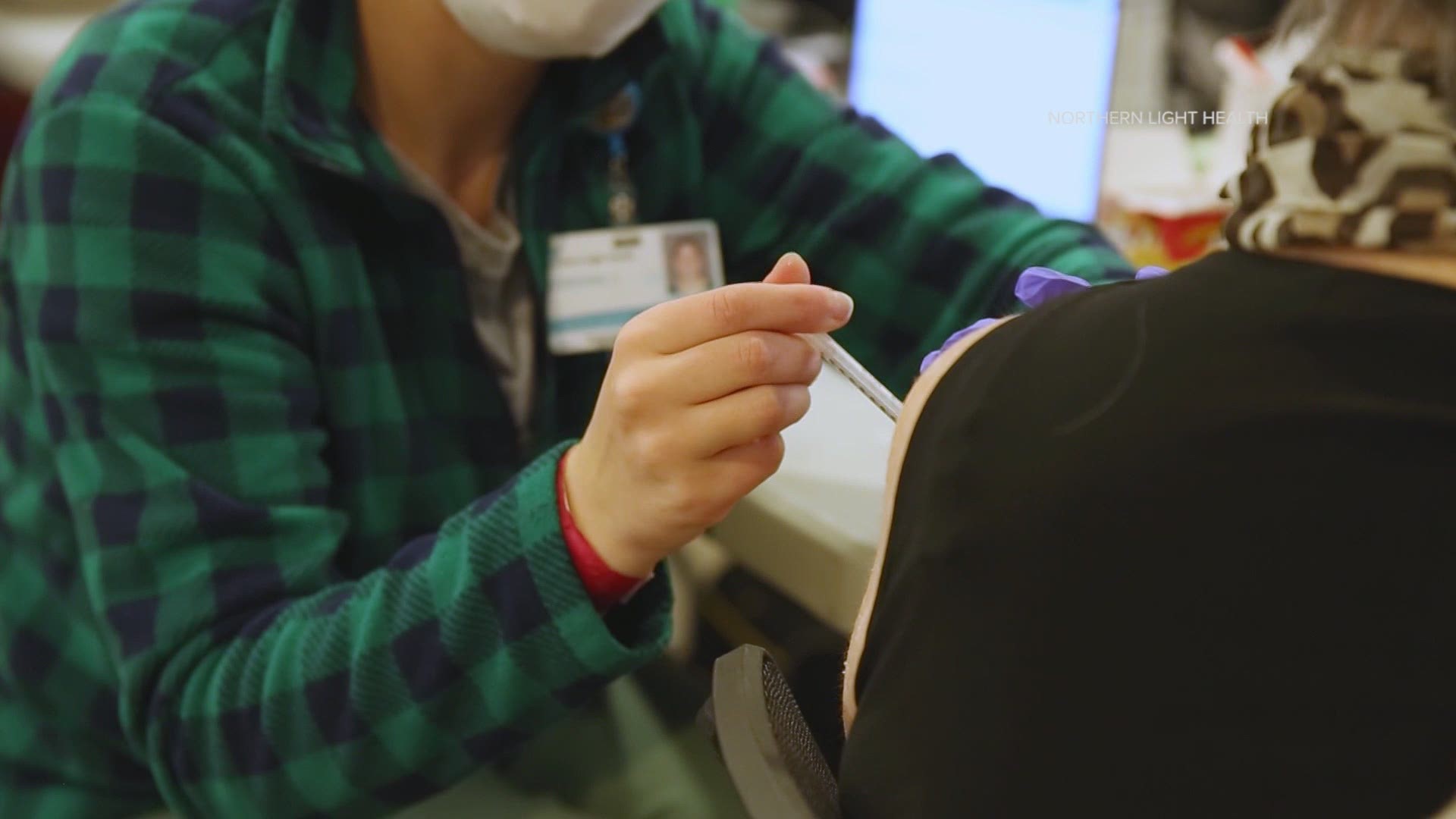PORTLAND, Maine — Some people report feeling sick after getting a second dose of the COVID-19 vaccine, a phenomenon the CDC said is completely normal.
There are rumors circulating that if one does not feel sick, the vaccine did not work. That is false, according to Maine CDC Director Dr. Nirav Shah.
Dr. Shah also refuted the claim that feeling sick or not after a dose is an indicator of one brand of vaccine being more effective than another.
Dr. Shah said during Tuesday's CDC briefing that it is normal for people to feel feverish or rundown for about eight to 12 hours following a second dose.
"That is your body's immune system kicking into high gear," Dr. Shah said.
He said more people report feeling those symptoms after the second dose of either Pfizer or Moderna.
"The first shot primes the pump. The first shot tells your body, 'Be ready. Get ready so that if you see this virus or any particles again, you will be ready to go and kick it into high-gear,'" Dr. Shah said. "The second shot fortifies the body's immune system to actually go into high-gear. When you get that second shot, your body's immune system is already primed. It's ready to go and it kicks into high-gear to fortify itself for the future."
Shah said not feeling sick does not indicate that the vaccine did not work, nor does it indicate that one brand is more or less effective than another.
"If you don't feel that way, it's okay, the vaccine still works. That difference doesn't seem to vary too much vaccine to vaccine," said Dr. Shah. "Don't be scared of getting the shot. You might feel a little crummy for a bit, but it's absolutely worth it compared to the benefit you get."
Dr. Shah said these symptoms of feeling run down or feverish are different from what the CDC considers an "adverse reaction" to the vaccine. The CDC said an adverse reaction might be, for example, allergic reactions like anaphylaxis. The CDC said those types of reactions are rare.

